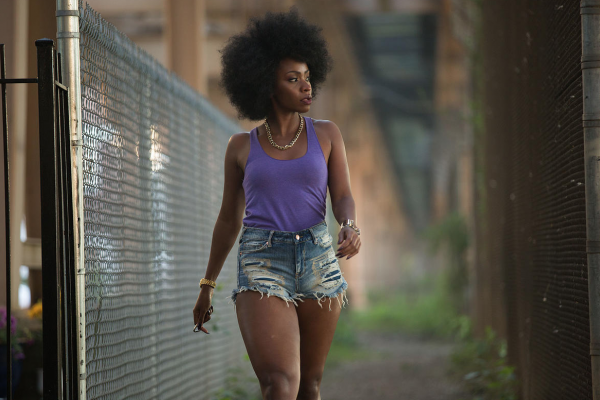Spike Lee didn’t plan Chi-Raq’s release to coincide with a year in which the number of mass shooting on record surpassed the number of days in the year thus far. Nobody could have expected that days before the film’s release, the shooting in San Bernadino, Calif., would push the gun debate to (another) boiling point, with cries for legislative action in addition to the frequent “thoughts and prayers” of politicians.
That most people are watching Chi-Raq with the shootings in California fresh in their minds is a coincidence — one which makes the film’s message all the more immediate.
Chi-Raq is a satirical drama, a modern retelling of the ancient Greek Lysistrata. In Lee’s version of the story, Lysistrata (Teyonah Parris of Dear White People) is the girlfriend of Chi-Raq (Nick Cannon), a rapper and gang leader on the south side of Chicago, Ill. He’s also in the midst of a war with Cyclops (Wesley Snipes), the leader of a rival gang. When a young girl in the neighborhood is killed by a stray bullet, Lysistrata rallies women affiliated on both sides of the gang war to demand peace by denying their men sex.
What starts as a protest becomes a movement, taking the city of Chicago and the world by storm.
As cinema, Chi-Raq is interesting and entertaining, if a little inconsistent. Lines are spoken mostly in verse, in keeping with the spirit of Aristophanes’ drama. There’s a Greek chorus in the form of Dolmedes (Samuel L. Jackson), who relays contextual information to the audience throughout the film. It’s got an eye-popping, irreverent sense of style.
On the other hand, the storytelling isn’t exactly subtle, and what humor there is takes a turn for the downright silly much of the time. The film also feels overlong — there are plenty of sections that could stand tightening.
But the urgency of the film’s message trumps any failings of storytelling. Regardless of your feelings on Spike Lee (and there are plenty of opinions to be had), Chi-Raq understands and addresses gun violence not just as a societal ill or a political rallying point, but as a cultural sin — something for which we all must atone. Lee and co-writer Kevin Willmott address this directly at two points in the film: once in a powerful sermon given by priest John Cusack (as a version of real-life south side priest Michael Pfleger); and again at the end of the film.
Though Cusack’s scene has (rightly) gotten lots of attention, it’s the second speech that takes the film’s message and turns it on the audience. The scene features the signing of a peace treaty between Chi-Raq and Cyclops, at which the whole community is present. When it’s Chi-Raq’s turn to sign, rather than simply surrender, he takes the opportunity to confess his guilt. This becomes a long, impassioned rant, which he gives facing the camera head-on.
The message is clear: when it comes to gun violence, it’s not enough to simply stop shooting. We need, all of us, to confess our sins — whether those are sins of direct involvement, or complicity in allowing violence in our country to continue unabated.
Chi-Raq ’s goofy satirical humor keeps it feeling fresh and smart. But it works better as a lament, and a call to action. On a macro level, Chi-Raq is an artistic megaphone for all the reactions to unjust deaths we’ve been faced with over and over again, both this year and beyond.
We need action, yes. But at the same time, we need to confess, to weep, and to move forward together.
Got something to say about what you're reading? We value your feedback!

